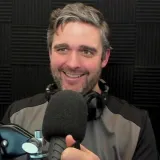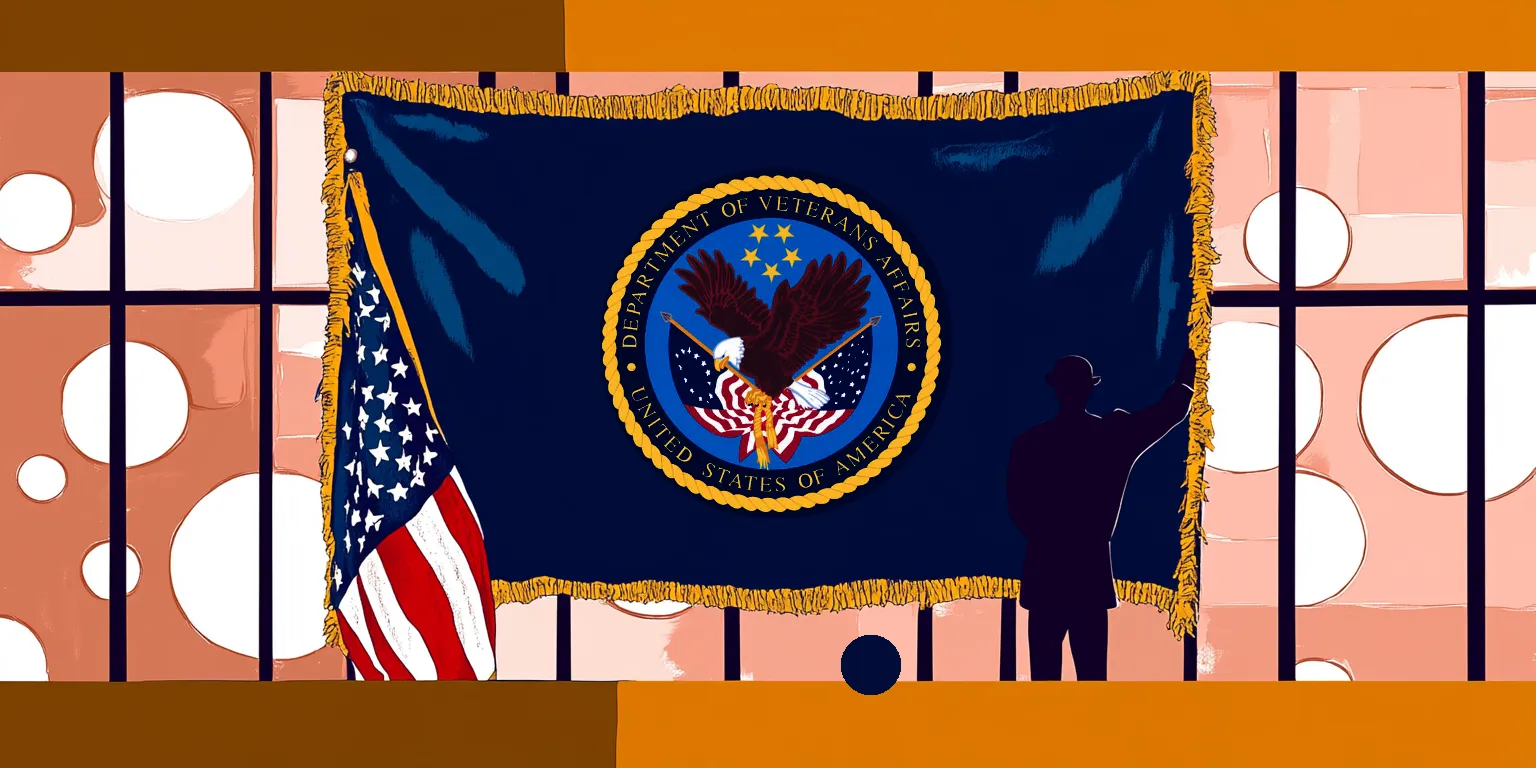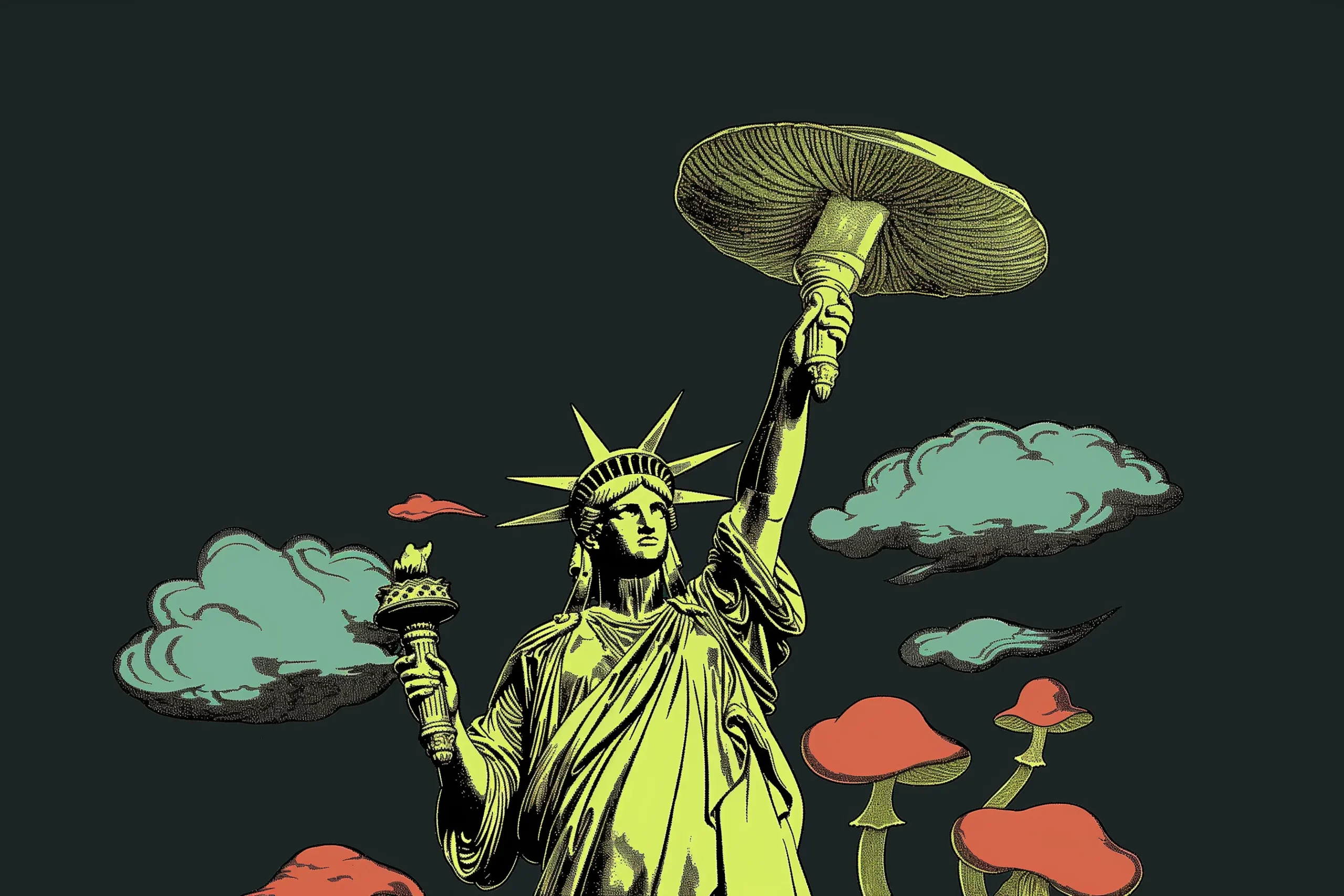In this week’s Psychedelic news roundup, we cover a dramatic shift in Health Canada’s policies surrounding the right to try psilocybin for extreme cases. Other news includes fresh psychedelic studies and an interesting invention from researchers at the University of Mississippi.
Historic Win: Canadian Cluster Headache Patient Granted Access to Psilocybin

The National Post reports on a groundbreaking psychedelic medicine ruling: a Calgary man named Jody Lance has been granted emergency access to psilocybin for the treatment of his severe cluster headaches, often referred to as “suicide headaches” due to their extreme pain. This decision came after a federal court criticized Health Canada for its previous refusal, describing it as “unreasonable” and “unintelligible.”
Key Points from the Case:
The approval marks a significant milestone, as this is the first time Health Canada has authorized psilocybin for cluster headaches, setting a precedent for other patients experiencing intense pain. The decision underscores the potential of psilocybin as a therapeutic option and may pave the way for broader access under Canada’s medical guidelines.
Keep Up with Uncensored Psychedelic Trends
Join our newsletter at Psychedelics Uncensored.
We respect and protect your privacy. By subscribing your info will be subject to our privacy policy . Unsubscribe easily at any time
While celebrating this victory, advocacy groups continue to push for regulatory frameworks similar to those for medical cannabis, aiming to broaden access to psilocybin for therapeutic uses. Reflecting on the decision during an interview with the National Post, Jody Lance expressed his relief, saying, “I’m very relieved to finally get approval.”(1)
Breakthrough Potential: Psychedelic Therapies in Combating Addiction

Biospace reports on the enduring battle against substance use disorders (SUDs) and how the psychedelic industry has responded to the need for new, evidence-based psychedelic treatments. According to the article, SUDs wreak havoc on individuals and strain healthcare systems globally, with an estimated $35.3 billion spent on medical costs in 2018 alone for people with U.S. employer-sponsored insurance. Despite the availability of traditional treatments, such as 12-step programs and medications like disulfiram for alcohol use disorder (AUD) and buprenorphine for opioid use disorder (OUD), the global death toll from SUD-related causes reached 3.2 million in 2019. The current medical arsenal against SUDs shows a clear need for more effective interventions.
Innovative Approaches on the Rise:

Psilocybin and Ketamine:
Johns Hopkins University is exploring psilocybin for its efficacy in treating various addictions, with promising preliminary data suggesting it could outperform traditional methods.

LSD’s Dual Mechanism:
MindMed is investigating LSD D-tartrate for anxiety and other disorders, emphasizing its potential to disrupt detrimental personal narratives through both psychological and neurobiological mechanisms.

Ibogaine for Opioid Addiction:
Atai Life Sciences is advancing clinical trials on ibogaine, a compound showing significant promise in reducing opioid cravings and withdrawal symptoms.
The therapeutic potential of psychedelics lies not just in their biochemical effects but in their ability to facilitate profound, introspective experiences that may help individuals recontextualize their relationship with addiction. Albert Garcia-Romeu from Johns Hopkins highlighted the historical context and current resurgence in psychedelic research for SUDs in the aforementioned article, noting that these substances often facilitate “deep, meaningful experiences that can be transformative.”
Keep Up with Psychedelic Trends
Get uncensored psychedelic news, events, and updates. Join Psychedelics Uncensored!
We respect and protect your privacy. By subscribing your info will be subject to our privacy policy . Unsubscribe easily at any time
The therapeutic potential of psychedelics lies not just in their biochemical effects but in their ability to facilitate profound, introspective experiences that may help individuals recontextualize their relationship with addiction. Albert Garcia-Romeu from Johns Hopkins highlighted the historical context and current resurgence in psychedelic research for SUDs in the aforementioned article, noting that these substances often facilitate “deep, meaningful experiences that can be transformative.”
University of Mississippi Engineers Pioneer Novel Microdosing Device for LSD

The Local Voice reports on an exciting development at the University of Mississippi, where engineers Thomas Werfel and Glenn Walker are making significant strides with a groundbreaking project aimed at combating treatment-resistant depression (TRD) through microdosing LSD and other psychoactive drugs. The duo has formed Interval Therapeutics LLC to facilitate the preclinical testing of their innovative implantable devices, which are designed to deliver small doses of drugs directly inside the body.
This initiative, backed by state funding under the Strengthening Mississippi Academic Research Through Business Act, represents a significant leap in the application of psychedelics for medicinal purposes. Werfel, an assistant professor of biomedical engineering, expressed his enthusiasm for the project, which has evolved from a concept to a functional endeavor aimed at addressing the dire needs of those with depression unresponsive to conventional treatments. “We heard from physicians who were really interested in microdosing psychedelics for depression,” Werfel stated in an interview with The Local Voice, highlighting the clinical interest that has propelled their research forward.
The device in question is particularly innovative due to its biodegradable nature. Its design to dissolve after the treatment period eliminates the need for surgical removal. Glenn Walker, whose expertise in microfabrication has been crucial to the project, detailed the technology’s adaptability: “Microfabrication opens up all sorts of interesting possibilities for administering drugs that haven’t been explored before,” Walker noted when speaking with The Local Voice. This technology enables precise drug delivery, potentially transforming treatment modalities for various chronic conditions beyond depression, such as heart disease and diabetes.
The team is focused on securing additional funding as it prepares for advanced preclinical testing. It ultimately aims to achieve Investigational New Drug status from the U.S. Food and Drug Administration. This step is essential for moving into human clinical trials, which are still several years away.
The development of this microdosing device is a testament to the collaborative efforts across various departments at the University of Mississippi. From securing patents with the Office of Technology Commercialization to legal assistance from the School of Law’s Transactional Law Clinic, the project exemplifies the university’s capacity for fostering innovative research.
Despite the challenges typical of drug development startups, the team remains cautiously optimistic about their contribution to improving mental health treatment.(3)
Psychedelic Therapies May Diminish Death Anxiety Through Shifts in Metaphysical Beliefs

Emerging research published in the journal Death Studies, and reported on by PsyPost, suggests that psychedelic experiences may significantly reduce death anxiety, potentially by altering individuals’ metaphysical beliefs about the nature of reality and consciousness. This study illuminates a potential pathway through which psychedelics could help individuals cope with existential fears, particularly the fear of mortality.
Sam Moreton, an associate lecturer at the University of Wollongong and the study’s lead author, explained the motivation behind the research in an interview with PsyPost, saying, “There is decent evidence that psychedelics can at least sometimes change people’s attitudes toward death. However, we don’t know much about why this is the case. We were interested in seeing how changes in death anxiety would relate to changes in metaphysical beliefs, as changed beliefs (such as beliefs about the nature of consciousness) are one route through which psychedelics might change death anxiety.”
The study engaged 155 participants who reported significant psychedelic trips that altered their views on death. These individuals, having used classic psychedelics like LSD, psilocybin, ayahuasca, DMT, or mescaline, provided insights into their beliefs and attitudes before and after their experiences through an anonymous online survey.
Findings from the study indicated a notable reduction in death anxiety post-psychedelic experience, with a significant shift towards non-physicalist beliefs—those that separate mind and body or acknowledge consciousness beyond the physical realm. Intriguingly, the belief in panpsychism, the idea that consciousness is a fundamental and ubiquitous aspect of the universe, correlated significantly with reduced death anxiety.
“Positive changes in death anxiety were most strongly related to changes in panpsychism, which is a metaphysical position that suggests that consciousness is within everything,” Moreton shared with PsyPost. This link suggests that perceiving consciousness as an intrinsic property of all things might help alleviate fears of nonexistence.
Despite these promising connections, Moreton noted that the study’s design has limitations, such as its retrospective nature, which could affect the accuracy of participants’ recollections. To build on these findings, future research could employ prospective methodologies, assessing participants before and after their psychedelic experiences to establish more definitive causal relationships.(4)
Sources

1. Kirkey, S. (2024, June 12). “Suicide headache” patient granted magic mushroom access after Health Canada U-turn. Nationalpost. https://nationalpost.com/news/suicide-headache-patient-granted-magic-mushroom-access
2. Psychedelic Therapies Could Soon Break Through Against Addiction. (n.d.). BioSpace. Retrieved June 12, 2024, from https://www.biospace.com/article/psychedelic-therapies-could-soon-break-through-against-addiction-/
3. Mississippi, U. of. (2024, June 11). University of Mississippi Engineers Pioneer Device to Microdose LSD – The Local Voice. https://www.thelocalvoice.net/oxford/university-of-mississippi-engineers-pioneer-device-to-microdose-lsd/
4. Dolan, E. W. (2024, June 8). Psychedelics may reduce death anxiety via panpsychism, study suggests. PsyPost – Psychology News. https://www.psypost.org/psychedelics-may-reduce-death-anxiety-via-panpsychism-study-suggests/#google_vignette
This material is not intended as a replacement or substitute for any legal or medical advice. Always consult a medical professional about your health needs. Psychedelics are widely illegal in the United States, and readers should always be informed about local, state, and federal regulations regarding psychedelics or other drugs.

 David Connell
David Connell





 Ross Dillon
Ross Dillon 
